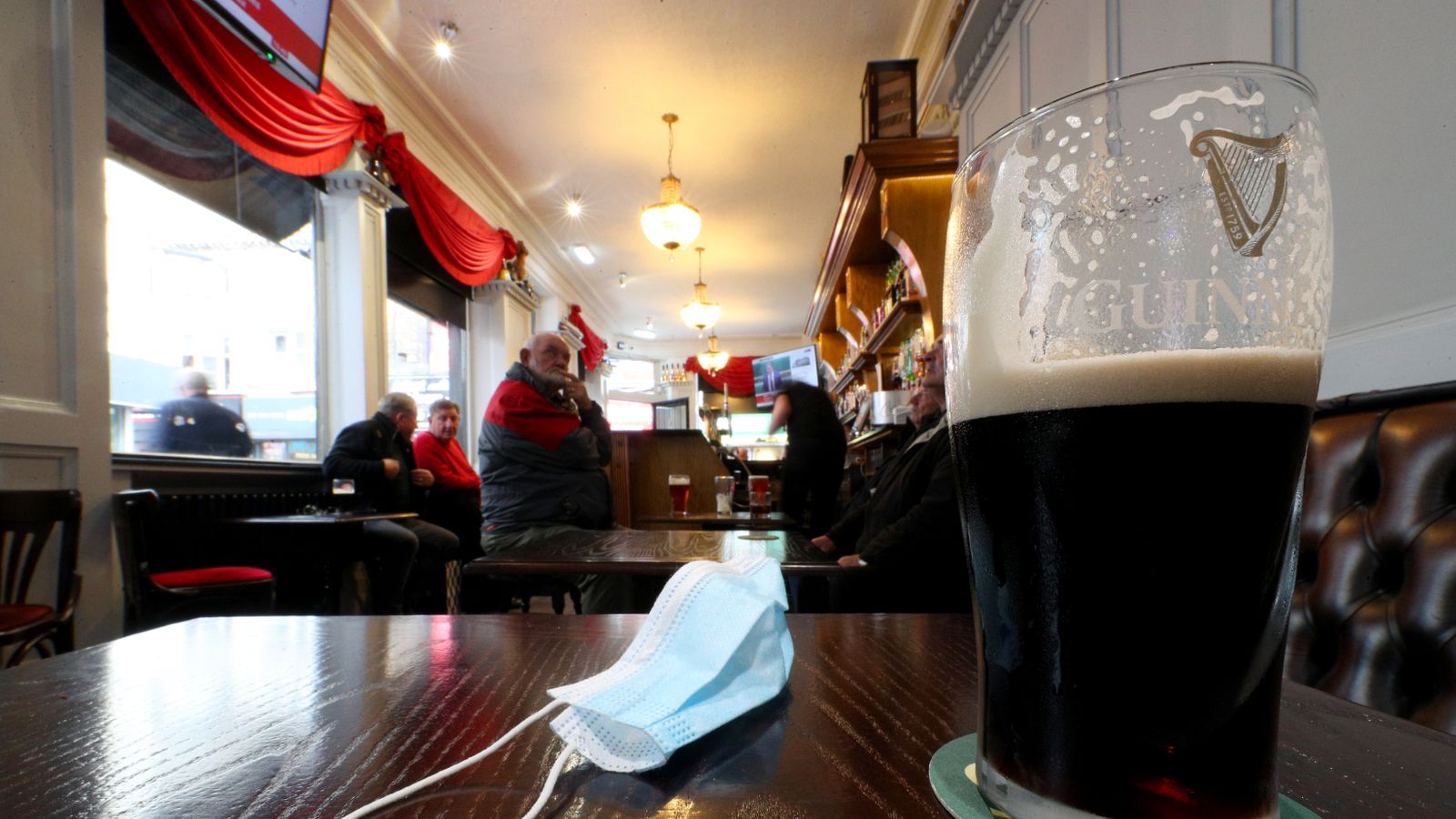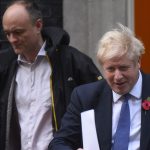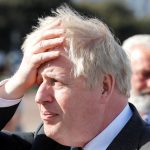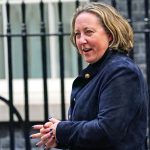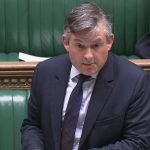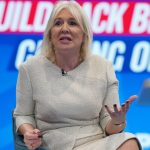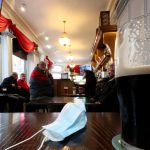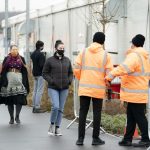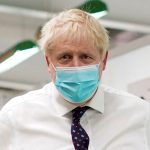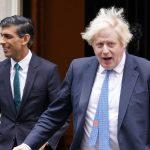Almost all COVID rules – including limits on the number of people who can meet together, legal requirements on wearing face masks, and social distancing in pubs and bars – will be ditched as part of the final step of the roadmap for lifting lockdown restrictions in England.
The government expects to push ahead with step four of its lockdown-lifting roadmap on 19 July, when Boris Johnson wants to move away from ministerial edicts for managing the coronavirus pandemic.
Instead, people in England will be encouraged to use their personal judgement on the risks of infection – with the prime minister wishing to see a new way of living with the virus.
However, despite the imminent removal of vast swathes of COVID restrictions, Mr Johnson urged people not to be “demob happy” and to think it was “the end of COVID”.
“It is very far from the end of dealing with this virus,” the prime minister told a Downing Street news conference on Monday, as he suggested there could be as many as 50,000 coronavirus cases per day by 19 July.
A final decision on whether to go ahead with the last phase of the roadmap will be taken in a week’s time, following a review of the latest data and if the government’s tests for removing restrictions are being met.
Should step four proceed on 19 July, it will see:
• No more limits on social contact to allow people to gather in groups of any size
• The removal of the “one metre-plus” rule in almost all settings, apart from specific places such as airports
• All remaining businesses, including nightclubs, able to re-open
• No capacity caps on large scale events, such as sports matches, theatre shows or concerts
• No more legal requirement on wearing face masks in shops or on public transport
• The government will no longer require people to work from home
• No more limits on the number of people who are able to visit care home residents
The government has also chosen not to impose the use of domestic COVID “passports” for people to demonstrate their vaccination or testing status when attending pubs, bars and restaurants or other venues.
There will be further announcements this week on whether schools and colleges will continue to have to “bubble” pupils, as well as on whether double-jabbed people will still have to self-isolate after contact with an infected person or on their return from an “amber list” country.
However, under those rules being retained, it will still be a legal requirement to self-isolate if you test positive for COVID-19, the one-metre plus rule will continue in specific places such as airports to prevent passengers from different destinations from mixing, and infection control measures will remain in place in care homes.
Mr Johnson told a Downing Street news conference on Monday that the pandemic was “far from over” and the country would have to “reconcile ourselves sadly to more deaths”.
But he said we must “balance the risk” of the virus against the impact of restrictions on people’s lives and livelihoods, as he highlighted the “continuing effectiveness” of the COVID vaccine rollout.
“We must be honest with ourselves that if we can’t reopen our society in the next few weeks – when we will be helped by the arrival of summer, and by the school holidays – then we must ask ourselves ‘when will we be able to return to normal?’,” the prime minister added.
Last month, Mr Johnson delayed the final lifting of lockdown restrictions by four weeks following an increase in cases of the Delta variant of COVID-19.
Downing Street said the delay had allowed the vaccine rollout to save thousands more lives by getting jabs to millions more people.
The vaccine rollout will now be accelerated further by reducing the interval between the two doses from 12 weeks to eight for under-40s.
This will mean that every adult should have had the chance to be double jabbed by mid-September, according to the prime minister.
